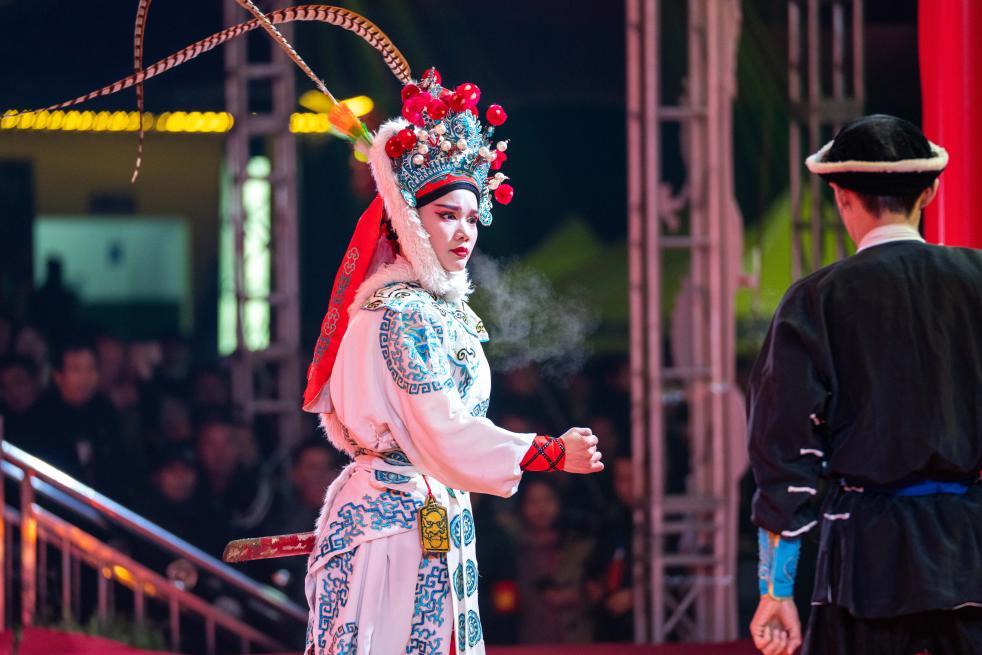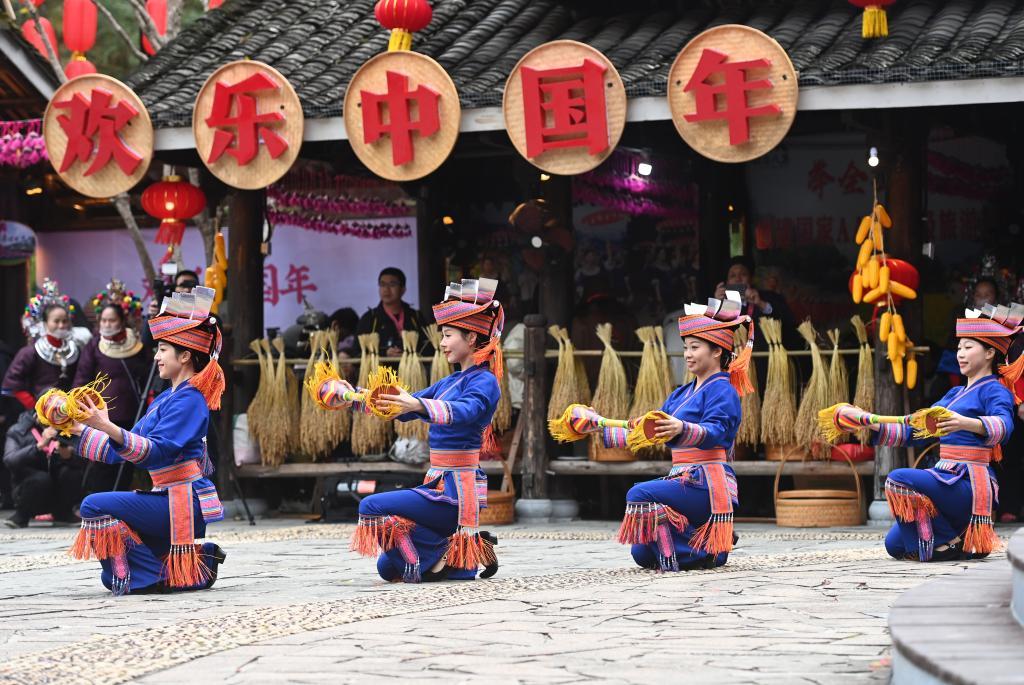
Villagers perform at a "village gala" held in Hualin Village of Henglongqiao Town, Yiyang City, central China's Hunan Province, Feb. 4, 2024. Local villagers in Henglongqiao Town participated in celebrations including the "village gala" and parade performances to welcome the upcoming Spring Festival. (Xinhua/Chen Sihan)
What magical sounds can be made with only soybeans and dustpans? No one is more familiar with the answer than a rural band consisting of 20 older men, of which the oldest member is 77 years of age.
Located about 260 kilometers from the city of Taiyuan, capital of north China's Shanxi Province, Bozhuang Village has showcased a unique type of Spring Festival gala. With all performers coming from surrounding villages and playing their handmade musical instruments, the gala has generated nearly 8 million views on the livestreaming platform Douyin, the Chinese version of TikTok.
Every year around the time of the Spring Festival, these 20 performers, who are normally cattlemen, tilers or cooks, temporarily put down their usual tools and pick up their instruments to join the biggest event of the year in their hometown -- performing for hundreds of villagers and many more online.
Zhang Yong, 46, organizer of the "village gala," is also a provincial inheritor of the national intangible cultural heritage known as "Gong and drums in southern Shanxi." Knowing his friends to be skilled folk art performers, from playing the suona to performing the dragon and lion dance, he organized the gala to give them a chance to show their talents.
"With millions of viewers watching in our livestream room, we're not worried about there being no one in the audience!" said Cheng Beicheng, 65, who leads the band.
"While inheriting traditional culture, we must also incorporate innovative methods," Zhang said.
Statistics from Douyin showed that from December 2022 to December 2023, about 5,000 village-gala-themed livestreaming shows were broadcast on the platform, with views totaling 22.97 million.
The country's "No. 1 central document" for 2024, which outlines the priorities for comprehensively promoting rural revitalization, calls for the prosperity and development of rural culture and strengthening the protection, inheritance and innovative development of fine traditional culture in rural areas.

People perform during the "village gala" at a scenic spot in Sanjiang Dong Autonomous County, Liuzhou City of south China's Guangxi Zhuang Autonomous Region, Feb. 3, 2024. (Xinhua/Lu Boan)
In many of China's rural areas, this kind of "village gala" has gradually become a common occurrence in recent years. Such performances have become platforms for villages around China to share and promote unique features and demonstrate the fruits of their development.
According to the Ministry of Culture and Tourism, more than 20,000 model village galas were held around China in 2023, amounting to about 130 million instances of participation.
For China's vast rural areas, these galas are more than just a stage.
Ke Wenping, Party secretary of Kecun Village in east China's Anhui Province, knows personally how the "village gala" has become a powerful force in generating rural development.
During a single livestream event, this small village with around 1,200 residents generated 30,000 yuan (about 4,168 U.S. dollars) by selling local agriculture products.
"We have also sold 330,000 yuan worth of other goods by livestreaming!" Ke said.
As the Spring Festival draws near, more "village gala" stories are sure to be told, whether on or off the stage.